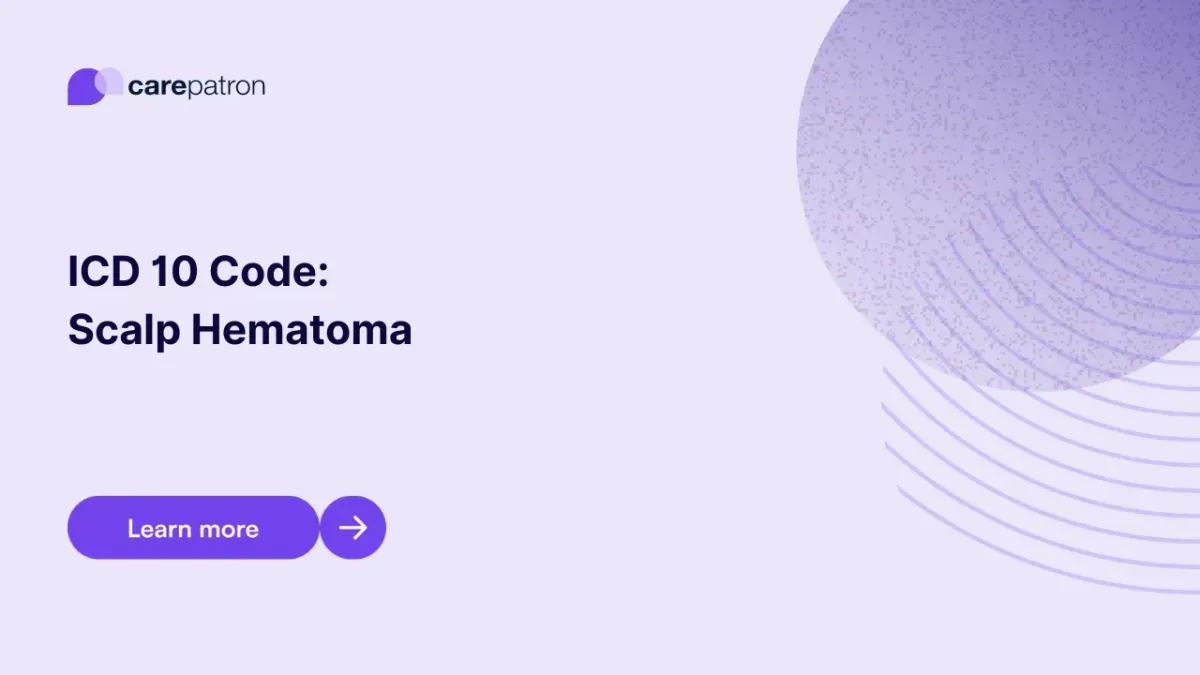
Scalp Hematoma ICD-10-CM Codes | 2025
Read this short guide to learn about Scalp Hematoma ICD codes you can use.
Use Code
Commonly asked questions
If the hematoma is moderate to severe, it can become life-threatening, so it’s best to see a doctor as soon as a person has symptoms associated with a scalp hematoma.
Healthcare professionals typically diagnose a scalp hematoma through physical examination, identifying swelling, discoloration, or tenderness in the scalp. In cases where more serious injury is suspected, such as multiple significant trauma or possible intracranial involvement, imaging tests like a CT scan may be used to confirm the diagnosis and rule out deeper head injuries.
If they’re not treated immediately, they might lead to neurological issues due to pressure exerted on the brain. The patient might also suffer from bacterial infections.
EHR and practice management software
Get started for free
*No credit card required
Free
$0/usd
Unlimited clients
Telehealth
1GB of storage
Client portal text
Automated billing and online payments
